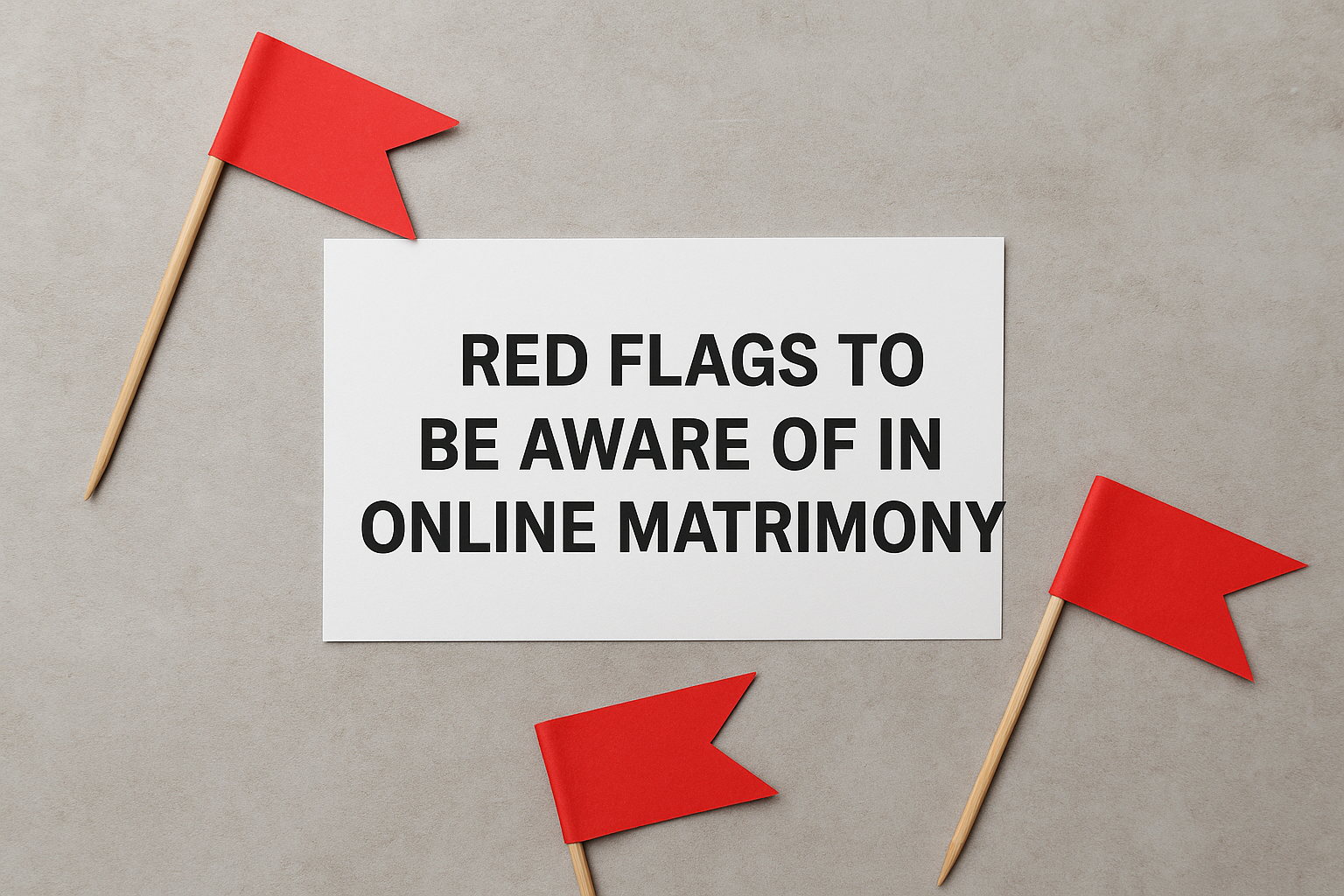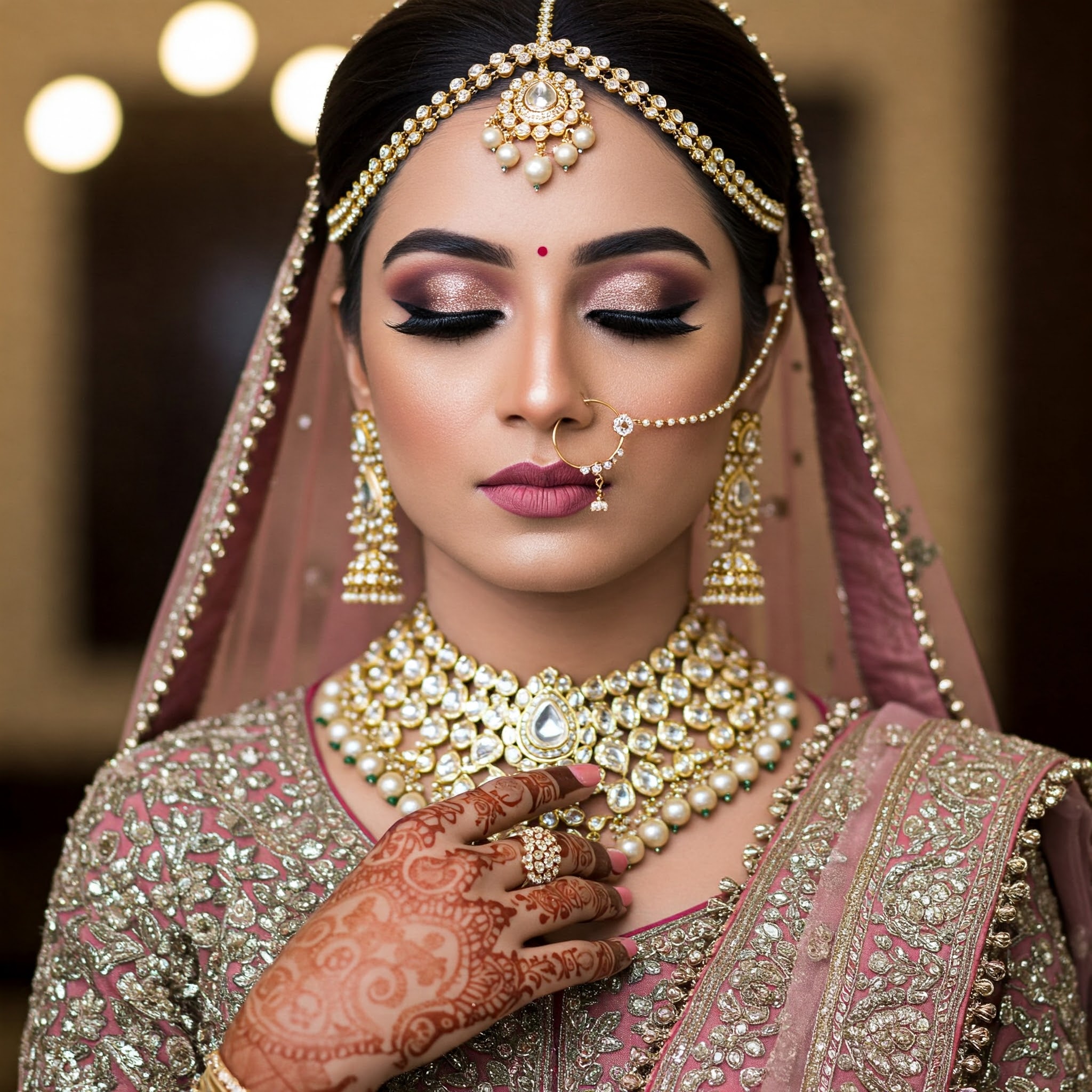
Red Flags to Be Aware of in Online Matrimony
08-Sep-2025 digi shaadi
Introduction
Online matrimony platforms have revolutionized how Indians and NRIs search for life partners. With millions of active users, smart matchmaking algorithms, and verified profiles, portals like DigiShaadi, Shaadi.com, and BharatMatrimony have become the go-to choice for modern matchmaking.
But while online matrimony is convenient and offers a wide pool of matches, there are risks involved. Just like in any online interaction, not everyone may have genuine intentions. Recognizing red flags early in the process is crucial to safeguard your emotional health, personal safety, and financial security.
In this blog, we’ll highlight the most common red flags in online matrimony, how to identify them, and the steps you can take to protect yourself.
Why Identifying Red Flags Is Important
Marriage is one of the most significant decisions in life. Unlike casual dating apps, matrimony sites involve serious intentions, family participation, and long-term commitments. A wrong step can result in heartbreak, financial loss, or even family complications.
By being alert to red flags, you can:
-
Avoid wasting time on fraudulent matches.
-
Protect your personal information and finances.
-
Build trust with genuine profiles.
-
Strengthen confidence in the online matrimony process.
1. Incomplete or Suspicious Profiles
One of the first signs of a potentially fake profile is missing or vague information.
Common warning signs:
-
No profile picture or only stock-like photos.
-
Vague or inconsistent details (education, job, family background).
-
Generic bios such as “I’m a simple person looking for a simple life.”
Why it matters: Genuine users take matrimony seriously and usually provide detailed, accurate information. Half-filled profiles may signal lack of commitment—or worse, deception.
What to do:
-
Verify details on LinkedIn or other professional platforms.
-
Prioritize verified accounts.
-
Avoid investing time in incomplete profiles.
2. Rushing Into Commitment Too Quickly
If someone pushes for commitment too soon, consider it a major red flag.
Warning signs:
-
Asking for your personal number within hours of chatting.
-
Pressuring to involve families within days.
-
Declaring “You’re the one” after just two conversations.
Why it matters: Building a genuine connection takes time. Haste often suggests ulterior motives, such as scams or insincerity.
What to do:
-
Take time to know the person.
-
Set clear boundaries for sharing personal details.
-
Involve your family only when you feel comfortable.
3. Avoiding Video Calls or Personal Meetings
In today’s world, most genuine matches are comfortable with video calls. If someone constantly avoids them, it’s a red flag.
Excuses to watch for:
-
“My camera isn’t working.”
-
“I’m too busy with work.”
-
“Let’s wait until after marriage to meet.”
Why it matters: People avoiding video calls may be using fake pictures or catfishing.
What to do:
-
Insist on at least a brief video call before moving forward.
-
Use secure platforms for calls.
-
If they repeatedly decline, reconsider the match.
4. Requests for Money or Financial Assistance
Financial scams are unfortunately common in online matrimony.
Scenarios include:
-
Claiming medical emergencies.
-
Asking for “travel costs” to meet.
-
Requests for money to process visas or documents.
Why it matters: Genuine families never ask for money before marriage proposals are officially agreed upon.
What to do:
-
Never transfer money to someone you haven’t met.
-
Report such profiles immediately.
-
Consult your parents before making any financial decision.
5. Inconsistent or Changing Information
If someone keeps altering details about their life, be cautious.
Examples:
-
First they say they’re in IT; later they claim they run a business.
-
Conflicting family or background details.
-
Inconsistent lifestyle stories.
Why it matters: Discrepancies often indicate dishonesty.
What to do:
-
Keep notes of your conversations.
-
Cross-check details via social media or mutual contacts.
-
Trust your instincts if things don’t add up.
6. Too Perfect to Be True
Some profiles may look flawless—but that itself is suspicious.
Traits of “too-perfect” profiles:
-
Glamorous, edited photos.
-
Overblown claims (millionaire, Ivy League, world traveller).
-
No relatable or ordinary details.
Why it matters: Scammers often create “dream profiles” to lure victims. Real people have balanced, authentic profiles.
What to do:
-
Run a reverse image search on their photos.
-
Ask specific questions about their life.
-
Check if their story is realistic and consistent.
7. Avoiding Family Involvement
In Indian culture, marriage is a family affair. Reluctance to involve family is a red flag.
Excuses may include:
-
“My family is very strict; I’ll tell them later.”
-
“Let’s keep it private until marriage.”
-
“Parents will get involved after we decide.”
Why it matters: Matrimony isn’t casual dating. Avoiding family usually indicates lack of seriousness.
What to do:
-
Ask when family introductions will happen.
-
Be upfront about your expectations.
-
Reconsider the match if excuses continue.
8. Excessive Secrecy About Lifestyle or Past
Openness builds trust. Too much secrecy signals potential problems.
Examples:
-
Avoiding questions about past relationships.
-
Vague about education or career.
-
Hiding lifestyle habits like drinking, smoking, or spending.
Why it matters: Concealed truths often lead to conflict after marriage.
What to do:
-
Respect privacy but expect basic openness.
-
Ask for clarity on important aspects before moving forward.
9. Negative or Aggressive Behaviour
Behavioural red flags are just as important as factual ones.
Warning signs:
-
Anger when you ask simple questions.
-
Mocking you or your family.
-
Ignoring your values and boundaries.
Why it matters: Early disrespect often signals future marital issues.
What to do:
-
Prioritise respect in communication.
-
End conversations if they turn toxic.
10. Lack of Verification or Official Details
Most leading matrimony platforms now require ID verification. If someone avoids it, be cautious.
Why it matters: Verified profiles provide basic assurance of authenticity.
What to do:
-
Choose platforms with ID verification.
-
Filter your searches to verified members.
-
Be transparent about your own verified status.
How to Stay Safe on Online Matrimony Platforms
-
Use trusted websites with safety features like ID verification and fraud protection.
-
Keep early conversations on the platform instead of moving to WhatsApp too soon.
-
Verify details independently via LinkedIn, social media, or mutual contacts.
-
Involve your parents or friends for a second opinion.
-
Trust your instincts—if it feels wrong, it probably is.
FAQs
Q1: Are online matrimony sites safe?
Yes—when you use reputed sites and follow safety precautions. Scams usually occur when people bypass platform safeguards.
Q2: Should I share personal documents with a match?
No. Never share sensitive documents until legal formalities are completed.
Q3: How can I verify if a profile is genuine?
Check for verification badges, ask for a video call, and cross-check information through social or professional platforms.
Q4: What if I find a fake profile?
Report it immediately. Most matrimony platforms have “Report” or “Block” features.
Conclusion
Online matrimony has opened doors for millions to find genuine life partners. But alongside opportunities come risks. By learning to spot red flags—whether incomplete profiles, rushed commitments, financial requests, or evasive behaviour—you can protect yourself and focus on real connections.
Always trust your instincts, be cautious, and remember: a healthy relationship is built on honesty, respect, and openness. When used wisely, online matrimony remains one of the safest and most effective ways to discover your ideal partner.




